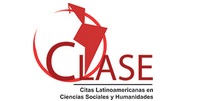Self-efficacy to self-regulate the study, mental health, and sociodemographic variables in Ecuadorian students during COVID-19
DOI:
https://doi.org/10.32870/dse.v0i30.1428Resumo
The research has shown special interest in academic variables, mental health and sociodemographic in students during the COVID-19 Pandemic by the drastic changes that the health emergency has caused in Higher Education. The aim of this study was to describe and to explore relations between self-efficacy to self-regulate the study, mental health variables and sociodemographic conditions students. The sample was non-probabilistic, made up of 534 university students from Ecuador. A descriptive, correlational cross-sectional design was used. The instruments applied had evidence of validity and reliability; were applied through the SurveyMonkey tool. The results showed mild depression, moderate stress, severe anxiety, and self-efficacy in insufficient levels. Significant relationships were identified between the mental health and self-efficacy variables. Differences were found in the groups based on sex, availability of materials and connection, work and study, variation in income during the pandemic and according to area of knowledge. It is suggested to use these results for the development of psychoeducational interventions that seek to improve the mental health and self-efficacy of university students during the health emergency.
Downloads
Referências
Algina, J., Keselman, H., & Penfield, R. (2005). An alternative to Cohen's standardized mean difference effect size: a robust parameter and confidence interval in the two independent groups case. Psychological methods, 10(3), 317-328. https://doi.org/10.1037/1082-989X.10.3.317
Alemany-Arrebola, I., Rojas-Ruiz, G., Granda-Vera, J., & Mingorance-Estrada, A. (2020). Influence of COVID-19 on the Perception of Academic Self-Efficacy, State Anxiety, and Trait Anxiety in College Students. Frontiers in Psychology, 1(2), 1-7. https://doi.org/10.3389/fpsyg.2020.570017
Asanov, I., Flores, F., McKenzie, D., Mensmann, M., & Schulte, M. (2021). Remote-learning, time-use, and mental health of Ecuadorian high-school students during the COVID-19 quarantine. World Development, 138, 105225. https://doi.org/10.1016/j.worlddev.2020.105225
Aristovnik, A., Kerži?, D., Ravšelj, D., Tomaževi?, N., & Umek, L. (2020). Impacts of the COVID-19 pandemic on life of higher education students: A global perspective. Sustainability, 12(20), 8438. https://doi.org/10.3390/su12208438
Ato, M., López-García, L., & Benavente, A. (2013). Un sistema de clasificación de los diseños de investigación en Psicología. Annals of Psychology, 29(3), 1038-1059. https://doi.org/10.6018/analesps.29.3.178511
Ayala, L. (2022). Depresión y autoeficacia en universitarios de Lima Sur [Tesis de pregrado, Universidad Autónoma del Perú]. Repositorio de la Universidad Autónoma del Perú.
Bandura, A. (1977). Self-efficacy: Towards a unifying theory of behavioral change. Psychological Review, 84 191–215. https://doi.org/10.1037/0033-295X.84.2.191
Bandura, A. (2006). Guide for constructing self-efficacy scales. Self-efficacy beliefs of adolescents, 5(1), 307-337. https://doi.org/10.1007/978-94-007-0753-5_2631
Bandura, A. (2012). On the functional properties of perceived self-efficacy revisited. Journal of Management, 38(1), 9–44. https://doi.org/10.1177/0149206311410606
Bao, W. (2020). COVID-19 and online teaching in higher education: A case study of Peking University. Human Behavior and Emerging Technologies, 2(2), 113-115. https://doi.org/10.1002/hbe2.191
Best, D., & Roberts, D. (1975). Algorithm AS 89: The Upper Tail Probabilities of Spearman's rho. Applied Statistics, 24, 377–379. https://doi.org/10.2307/2347111
Cao, W., Fang, Z., Hou, G., Han, M., Xu, X., Dong, L., & Zheng, J. (2020). The psychological impact of the COVID-19 epidemic on college students in China. Psychiatry Research, 287, 1-5. https://doi.org/10.1016/j.psychres.2020.112934
Code of Ethics American Educational Research Association Approved by the AERA Council. (2011). https://www.aera.net/Portals/38/docs/About_AERA/CodeOfEthics(1).pdf
Chi, X., Becker, B., Yu, Q., Willeit, P., Jiao, C., Huang, L., & Solmi, M. (2020). Prevalence and psychosocial correlates of mental health outcomes among chinese college students during the coronavirus disease (COVID-19) pandemic. Frontiers in Psychiatry, 11, 1-9. https://doi.org/10.3389/fpsyt.2020.00803
Contreras-Saavedra C, Sáez-Delgado F, Contreras-Saavedra CE, Mella-Norambuena J, López-Angulo Y. (2024). Género y autorregulación en estudiantes. Salud, Ciencia y Tecnología; 4(615), 1-10. https://doi.org/10.56294/saludcyt2024615
Cornejo, J., Cárdenas, T., & Frausto, M. (2023). Impacto educativo en pandemia en alumnos de nivel superior del norte de Jalisco. Revista de Investigación en Tecnologías de la Información, 11(24), 1–14. https://doi.org/10.36825/RITI.11.24.001
Daza, P., Novy, D., Stanley, M., & Averill, P. (2002). The depression anxiety stress scale-21: Spanish translation and validation with a Hispanic sample. Journal of Psychopathology and Behavioral Assessment, 24(3), 195-205. https://doi.org/10.1023/A:1016014818163
Díaz, A., Prados, J., Canos, V., & Martínez, A. (2020). Impacts of confinement due to COVID-19 among university students: Life Satisfaction, Resilience and Social Capital Online. RISE, 9(1), 79-104. https://dialnet.unirioja.es/servlet/articulo?codigo=7495555
Díaz-Mujica, A., Sáez-Delgado, F., Cobo-Rendón, R., Del Valle, M., López-Angulo, Y., & Pérez-Villalobos, M. (2022). Systematic review for the definition and measurementof self-efficacy in university students. Interdisciplinaria, 39(2), 37-54. https://doi.org/10.16888/interd.2022.39.2.3
Duong, V., Pham, P., Yang, T., Wang, Y., & Luo, J. (2020). The ivory tower lost: How college students respond differently than the general public to the covid-19 pandemic. ArXiv, 1(1),126-130. https://doi.org/10.1109/ASONAM49781.2020.9381379
Elmer, T., Mepham, K., & Stadtfeld, C. (2020). Students under lockdown: Assessing change in students' social networks and mental health during the COVID-19 crisis. 1-34. https://osf.io/muknv/
Ethical principles of psychologist and code of conduct (2017). https://www.apa.org/ethics/code
Fawaz, M., & Samaha, A. (2020). E ? learning: Depression, anxiety, and stress symptomatology among Lebanese university students during COVID-19 quarantine. Nursing Forum, 56(1), 52-57. https://doi.org/10.1111/nuf.12521
Fox, J., & Weisberg, S. (2019). An R Companion to Applied Regression. USA: Third Edition, Sage.
Gutiérrez, A., & Landeros, M. (2018). Academic self-efficacy and anxiety, as a critical incident, in university men and women. Costa Rican Journal of Psychology, 37(1), 1-25. https://doi.org/10.22544/rcps.v37i01.01
Hertz-Palmor, N., Moore, T., Gothelf, D., DiDomenico, G., Dekel, I., Greenberg, D., & Barzilay, R. (2021). Association among income loss, financial strain and depressive symptoms during COVID-19: evidence from two longitudinal studies. Journal of Affective Disorders, 291, 1-8. https://doi.org/10.1016/j.jad.2021.04.054
Huang, F., Sánchez, J., Teo, T., García, F., Sánchez, E., & Zhao, C. (2020). The influence of university students' learning beliefs on their intentions to use mobile technologies in learning: a study in China and Spain. Educational Technology Research and Development, 68(2), 1-19. https://doi.org/10.1007/s11423-020-09806-0
Ihm, L., Zhang, H., van Vijfeijken, A., & Waugh, M. (2021). Impacts of the COVID-19 pandemic on the health of university students. The International Journal of Health Planning and Management, 36(3), 618-627. https://doi.org/10.1002/hpm.3145
Khodabakhshi-koolaee, A. (2020). Living in home quarantine: Analyzing psychological experiences of college students during COVID-19 pandemic. Journal of Military Medicine, 22(2), 130-138. https://doi.org/10.30491/JMM.22.2.130
Issa, A., Abdallah, N., Cohen, S., Jason von, M., & Abusal, D. (2023). Evaluating the mental health of international students in the U.S. during the COVID-19 outbreak: The case of University of Florida. Journal of American College Health. https://doi.org/10.1080/07448481.2023.2168547
Liverpool, S., Moinuddin, M., Aithal, S., Owen, O., & Bracegirdle, K. (2023) Mental health and wellbeing of further and higher education students returning to face-to-face learning after COVID-19 restrictions. PLOS ONE 18(1), e0280689. https://doi.org/10.1371/journal.pone.0280689
Lee, W. (2017). Relationships among grit, academic performance, perceived academic failure, and stress in associate degree students. Journal of Adolescence, 60, 148-152. https://doi.org/10.1016/j.adolescence.2017.08.006
Liu, X., Liu, J., & Zhong, X. (2020). Psychological State of College Students During COVID-19 Epidemic. The Lancet. http://dx.doi.org/10.2139/ssrn.3552814
Lobos, K., Cobo, R., Sáez-Delgado, F., Mella-Norambuena, J., Cisternas, N. (2023). Return to face-to-face classrooms in higher education: students experiences in Chile, Venezuela, and Ecuador. Emerging Science Journal, 7, 217-237. https://doi.org/10.28991/ESJ-2023-SIED2-017
López-Angulo, Y., Sáez-Delgado, F., Guiñez, A., Torres, V., Muñoz-Inostroza, K., Becerra, J. (2023). Rol de la familia en el fomento del aprendizaje autorregulado de estudiantes chilenos durante confinamiento por COVID-19. Revista Costarricense de Psicología, 42(1), 111-125. http://dx.doi.org/10.22544/rcps.v42i01.07
Maia, B., & Dias, P. (2020). Anxiety, depression, and stress in university students: the impact of COVID-19. Estudos def Psicologia (Campinas), 37, 1-8. https://doi.org/10.1590/1982-0275202037e200067
Meza-Dávalos, M., Ramos-Murillo, T., & Morales-Trejo, E. (2023). Ansiedad y depresión en la educación virtual en estudiantes universitarios durante la covid-19. RINDERESU, 7(1-2). http://rinderesu.com/index.php/rinderesu/article/view/145/147
Ministerio de Telecomunicaciones. (s.f). Indicadores de conectividad a escala nacional. https://www.telecomunicaciones.gob.ec/25693-2/
Mishra, L., & Kumar, N. (2023). Higher education students’ behaviour and mental health during Covid-19 lockdown: a pilot study. Journal of Public Health, 31, 747–753. https://doi.org/10.1007/s10389-021-01591-1
Orellana, C., & Orellana, L. (2020). Predictores de síntomas emocionales durante la cuarentena domiciliar por pandemia de COVID-19 en El Salvador. Actualidades en Psicología, 34(128), 103-120. http://dx.doi.org/10.15517/ap.v34i128.41431
Norton, P. (2007). Depression Anxiety and Stress Scales (DASS-21): Psychometric analysis across four racial groups. Anxiety, Stress & Coping, 20(3), 253-265. https://doi.org/10.1080/10615800701309279
Othman, N., Ahmad, F., El Morr, C., & Ritvo, P. (2019). Perceived impact of contextual determinants on depression, anxiety and stress: a survey with university students. International Journal of Mental Health Systems, 13(1), 1-9. https://doi.org/10.1186/s13033-019-0275-x
Pragholapati, A. (2020). COVID-19 Impact on Students. https://doi.org/10.35542/osf.io/895ed
Presidency of the Republic of Ecuador. (s.f). Ecuador está más unido, gracias a la democratización de las telecomunicaciones. https://www.presidencia.gob.ec/ecuador-esta-mas-unido-gracias-a-la-democratizacion-de-las-telecomunicaciones-video/
Ramón-Arbués, E., Gea-Caballero, V., Granada-López, J., Juárez-Vela, R., Pellicer-García, B., & Antón-Solanas, I. (2020). The prevalence of depression, anxiety and stress and their associated factors in college students. International Journal of Environmental Research and Public Health, 17(19), 1-15. https://doi.org/10.3390/ijerph17197001
Rajkumar, R. (2020). COVID-19 and mental health: A review of the existing literature. Asian Journal of Psychiatry, 52(1), 1-5. https://doi.org/10.1016/j.ajp.2020.102066
Sáez-Delgado, F., Bustos, C., & Díaz, A. (2018). Autoeficacia Cuestionario de Autorregulación de Estudio Readiness. Avaliação Psicológica, 17(1), 92-100. https://dx.doi.org/10.15689/ap.2017.1701.10.13348
Sáez-Delgado, F., Cofré, M., Estrada, C., Fornerod, M., García, M., Muñoz, E., Segovia, G. (2020) Escala de autoeficacia docente para la promoción de la autorregulación del aprendizaje. Revista CienciAmerica, 9(3), 64-88. http://dx.doi.org/10.33210/ca.v9i3.332
Sáez-Delgado, F., Lobos, K., López-Angulo, Y., Mella-Norambuena, J., & Pinochet, P. (2023). Fomento de la autorregulación del aprendizaje desde una comprensión cualitativa durante la pandemia Covid-19. Revista Mexicana de Investigación Educativa, 28(96), 159-186.
Sáez-Delgado, F., López-Angulo, Y., Mella-Norambuena, J., & Casanova, D. (2022). Prácticas docentes para promover la autorregulación del aprendizaje durante la pandemia COVID-19: escalas de medición y modelo predictivo. Formación Universitaria, 15(1), 95-104. http://dx.doi.org/10.4067/S0718-50062022000100083
Sáez-Delgado, F., Mella-Norambuena, J., López Angulo, Y., Olea- González, C., García-Vásquez, H., & Porter, B. (2021). Association between self-regulation of learning, forced labor insertion, technological barriers, and dropout intention in Chile. Frontier in Education, 6, 801865. https://doi.org/10.3389/feduc.2021.801865
Saldívar, A., & Ramírez-Gómez, K. (2020). Mental health, gender and remote teaching during confinement by COVID-19 in Mexico. Person 023(2), 11-40. https://dialnet.unirioja.es/servlet/articulo?codigo=7838725
Schunk, D. H. (1991). Self-efficacy and academic motivation. Educational Psychologist, 26(3–4), 207–231. https://doi.org/10.1080/00461520.1991.9653133
Sumba-Bustamante, R., Saltos-Ruiz, G., Rodríguez-Suarez, C., & Tumbaco-Santiana, Z. (2020). Unemployment in Ecuador: causes and consequences. Knowledge Pole: Scientific-professional magazine, 5(10), 774-797. https://doi.org/10.23857/pc.v5i10.1851
Tasso, A., Hisli, N., & San Roman, G. (2021). COVID-19 disruption on college students: Academic and socioemotional implications. Psychological Trauma: Theory, Research, Practice, and Policy, 13(1), 9. https://doi.org/10.1037/tra0000996
Thode, J. (2002). Testing for Normality. New York: Marcel Dekker.
Wallin, A., Koupil, I., Gustafsson, J., Zammit, S., Allebeck, P., & Falkstedt, D. (2019). Academic performance, externalizing disorders and depression: 26,000 adolescents followed into adulthood. Social Psychiatry and Psychiatric Epidemiology, 54(8), 977-986. http://dx.doi.org/10.1007/s00127-019-01668-z
Wang, C., Pan, R., Wan, X., Tan, Y., Xu, L., Ho, C., & Ho, R. (2020). Immediate psychological responses and associated factors during the initial stage of the 2019 coronavirus disease (COVID-19) epidemic among the general population in China. International Journal of Environmental Research and Public Health, 17(5), 1729. https://doi.org/10.3390/ijerph17051729
Yuen, K. (1974). The two-sample trimmed t for unequal population variances. Biometrika, 61(1), 165- 170. https://doi.org/10.1093/biomet/61.1.165
Zapata, A., & De Lille, M. (2024). Autoeficacia Académica y su Relación con los Niveles de Ansiedad y Depresión en Universitarios. Ciencia Latina Revista Científica Multidisciplinar, 7(6), 3873-3887. https://doi.org/10.37811/cl_rcm.v7i6.8963
Zhai, Y., & Du, X. (2020). Addressing collegiate mental health amid COVID-19 pandemic. Psychiatry Research, 288, 113003. https://doi.org/10.1016/j.psychres.2020.113003
Downloads
Publicado
Edição
Seção
Licença
Copyright (c) 2024 Universidad de Guadalajara

Este trabalho está licenciado sob uma licença Creative Commons Attribution-NonCommercial 4.0 International License.
Esta obra está bajo una licencia internacional Creative Commons Atribución-NoComercial 4.0.
Una vez que los manuscritos son aceptados por los evaluadores para ser publicados, los autores deberán de suscribir una carta de cesión de derechos en favor de la Universidad de Guadalajara para la edición, publicación y difusión de su obra. Ya que sea notificada la publicación de su manuscrito, el editor de la revista le enviará un correo electrónico con el formato de la carta de cesión de derechos.















